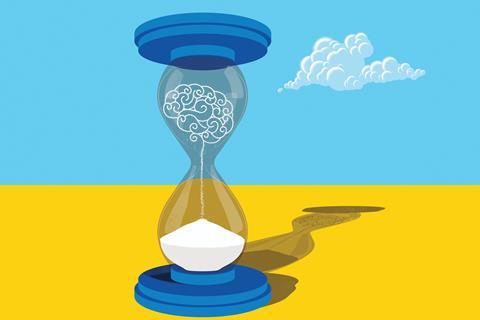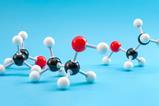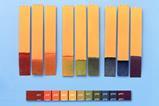Kristy Turner arms you with the knowledge to understand and mitigate learning loss over the holidays

It is more than 20 years since I first learned the colours of transition metal complexes. Yet, despite the fact I have since taught them countless times to countless students, I still cannot remember some of them. Forgetting is annoying and inconvenient, but it is a natural process and should be expected by teachers.
We tend to think of forgetting as the opposite of remembering – but it is actually a key element of the learning process. Forgetting is a way in which we sort important information from trivial. It actually increases the efficiency of our learning by stopping us from remembering trivial details when we need to recall important ones. It’s just a shame when our students’ brains sort some of their chemistry knowledge into the trivial category.
Why we forget
Humanity has wondered and written about memory for almost as long as it has existed. Aristotle thought that the heart was the organ of learning and that the brain’s function was to cool the heart. Nowadays, if you ask most teachers about forgetting, it is the name of Ebbinghaus that mostly comes to mind. Ebbinghaus’ work dates back to the beginnings of experimental psychology in the late 19th century and it does have its limitations. He was the only participant in his research, which involved memorising and later recalling a series of nonsense syllables. This was extrapolated into a concept now called the ‘Ebbinghaus forgetting curve’.
Learning decay can be halted by attempts to retrieve the knowledge
Forgetting is actually a key element of the learning process
Despite the obvious limitations of the original study, Ebbinghaus’ work has been explored and updated by many researchers since. It is also still relevant in our modern classrooms: if learning is left and no attempt is made to recall it, it will decay over time. The progress of this learning decay can be halted by attempts to retrieve the knowledge, thereby flattening the curve. Later research building on Ebbenhaus’ work showed that decay is slower when the original learning is stronger, when it has a connection with prior learning and when more information is learned.
Retrieval practice, spaced practice and interleaving are becoming part of the everyday language of classroom teachers thanks to efforts by researchers like the Learning Scientists, and many of us have integrated these into our classroom practice. This means the forgetting curve is being flattened while pupils are with us and while they engage with homework. But what about during the holidays?
Summer learning loss
We assume students do minimal schoolwork over the summer holidays and learning decays when no attempt is made to retrieve it – so it is not surprising that some learning is lost during the holidays. The phenomenon of summer learning loss is well documented in the literature. In most countries there are relatively long summer holidays; the six-week break common in the UK is actually quite short compared to some.
The aim is long-term recall, so try not to worry about learning losses after the summer holidays
Factual and procedural knowledge is considered more likely to decay than conceptual understanding
Factual and procedural knowledge is considered more likely to decay than conceptual understanding. This probably accounts for me not remembering those transition metal complex colours but not forgetting associated knowledge like the origin of the colour in those complexes, which is more conceptual. Losses are also more significant in older students, although this hasn’t been studied much for students beyond age 14. Unsurprisingly, disadvantaged students and those with special educational needs are most seriously affected.
Psychologists generally agree that learning loss is greater in areas of mathematics and less noticeable in literacy. After all, we live in a literate world surrounded by words in many forms and we are less likely to come across a chance to recall mathematical knowledge in our everyday lives. This could be extrapolated to chemical knowledge.
Forgetting chemistry
There haven’t been any studies specifically looking at loss of knowledge in chemistry, but if we consider which parts of our subject are conceptual and which are procedural then we will be able to anticipate learning losses more accurately. In my own research I tested whether the boys I taught forgot how to balance equations over the summer. Pleasingly, I found they didn’t. Perhaps this represents another example of the conceptual knowledge that is less likely to decay.
When I surveyed advanced chemistry teachers to find their views on what areas of chemistry might suffer from learning loss as students transfer to higher education, they felt that organic transformations were most likely to be forgotten. All those reagents and conditions may feel disconnected from prior knowledge and, dare I say it, seem a little trivial – and so are more easily forgotten.
How can we plan for forgetting?
- The first step in dealing with any potential summer learning loss is acknowledging it is going to happen and accepting it as part of the learning process.
- Make sure to recap learning. Time spent on recapping is not time wasted; it will make the curriculum more efficient in the long run.
- Integrate retrieval practice, spaced practice and interleaving into your day-to-day practice and use those terms when discussing what you are doing. This helps to build habits in students and the common language helps them to recognise what they are doing in their study at home.
- Talk to students about learning loss. Help them to understand the role of forgetting in learning and how they can help you to help them secure learning in their long-term memory.
- Keep in mind that the aim is long-term recall, so try not to worry about learning losses in the short term – such as after the summer holidays.
Kristy Turner is a school teacher fellow at University of Manchester and Bolton School














1 Reader's comment